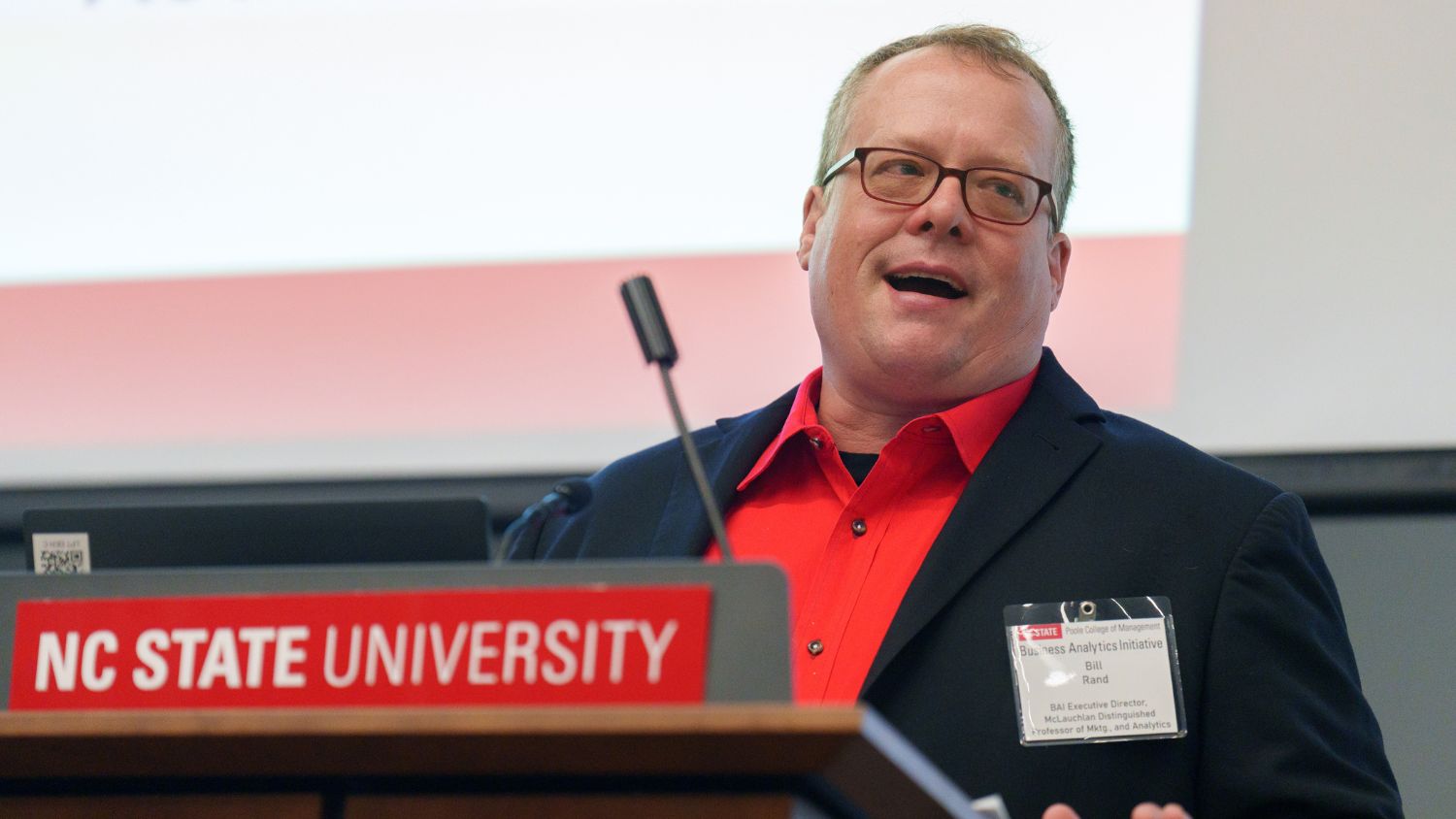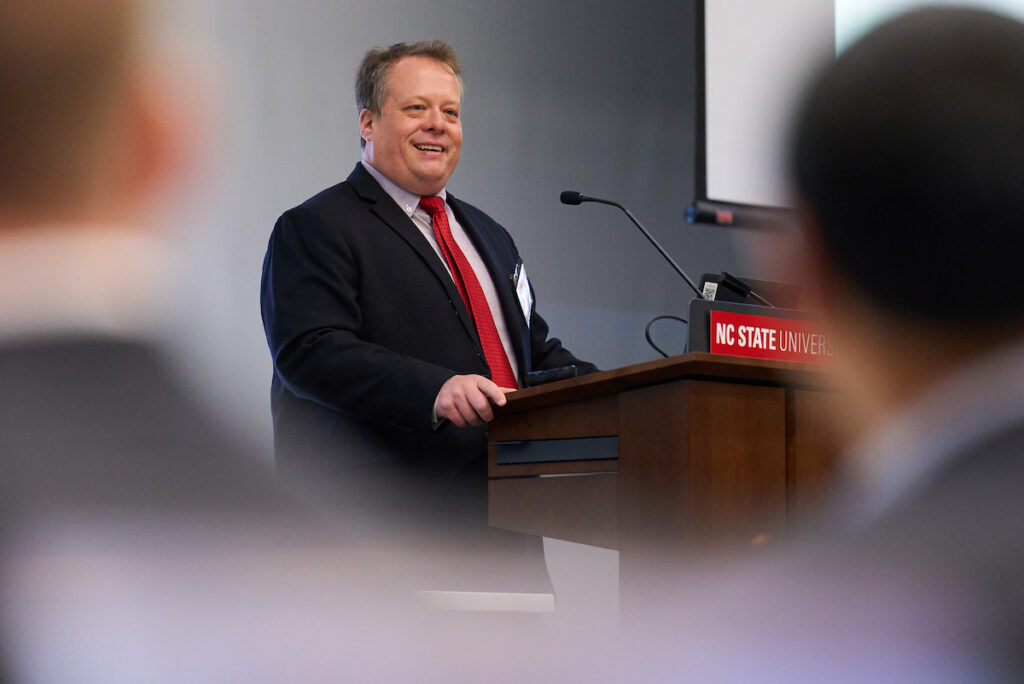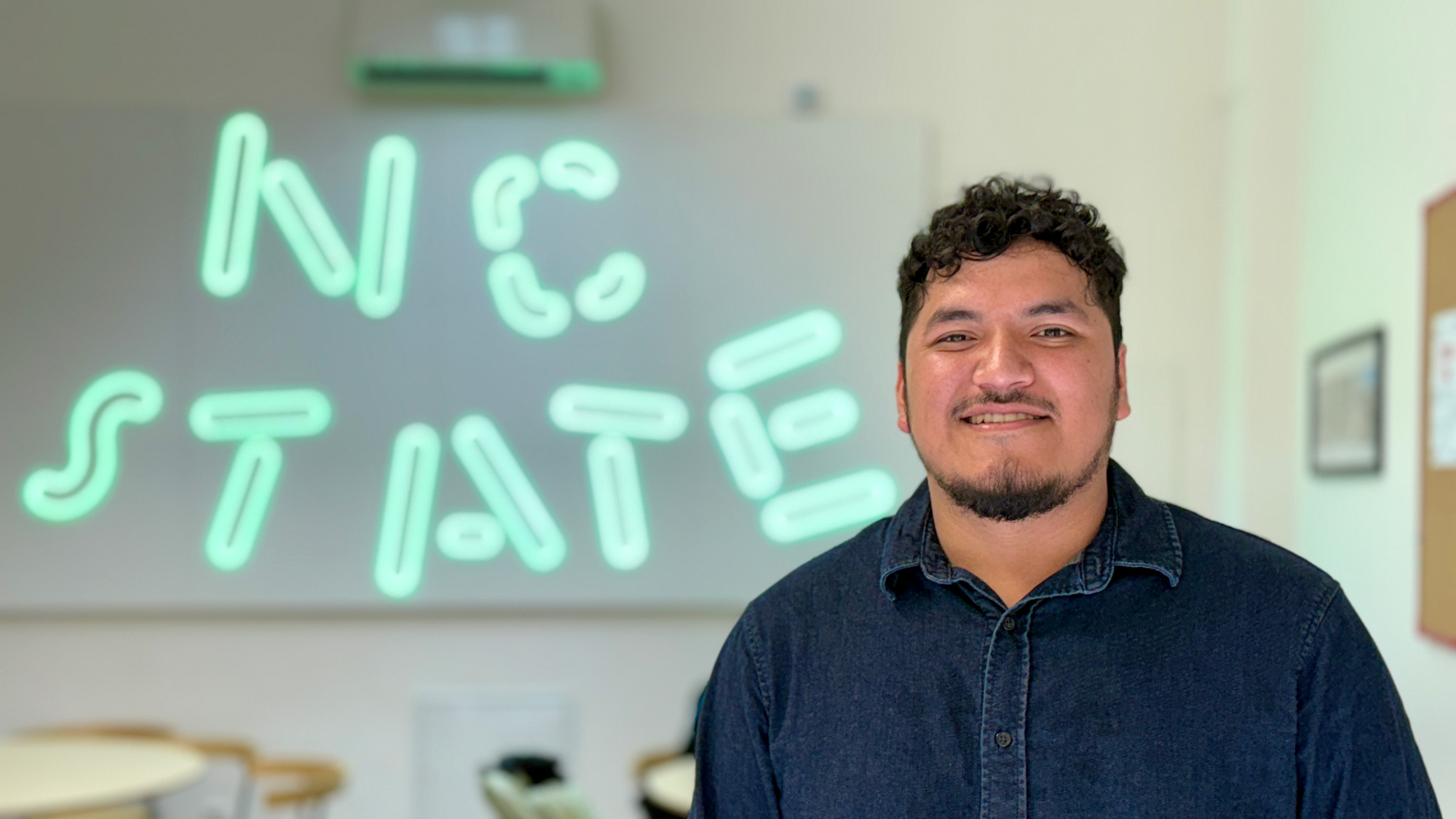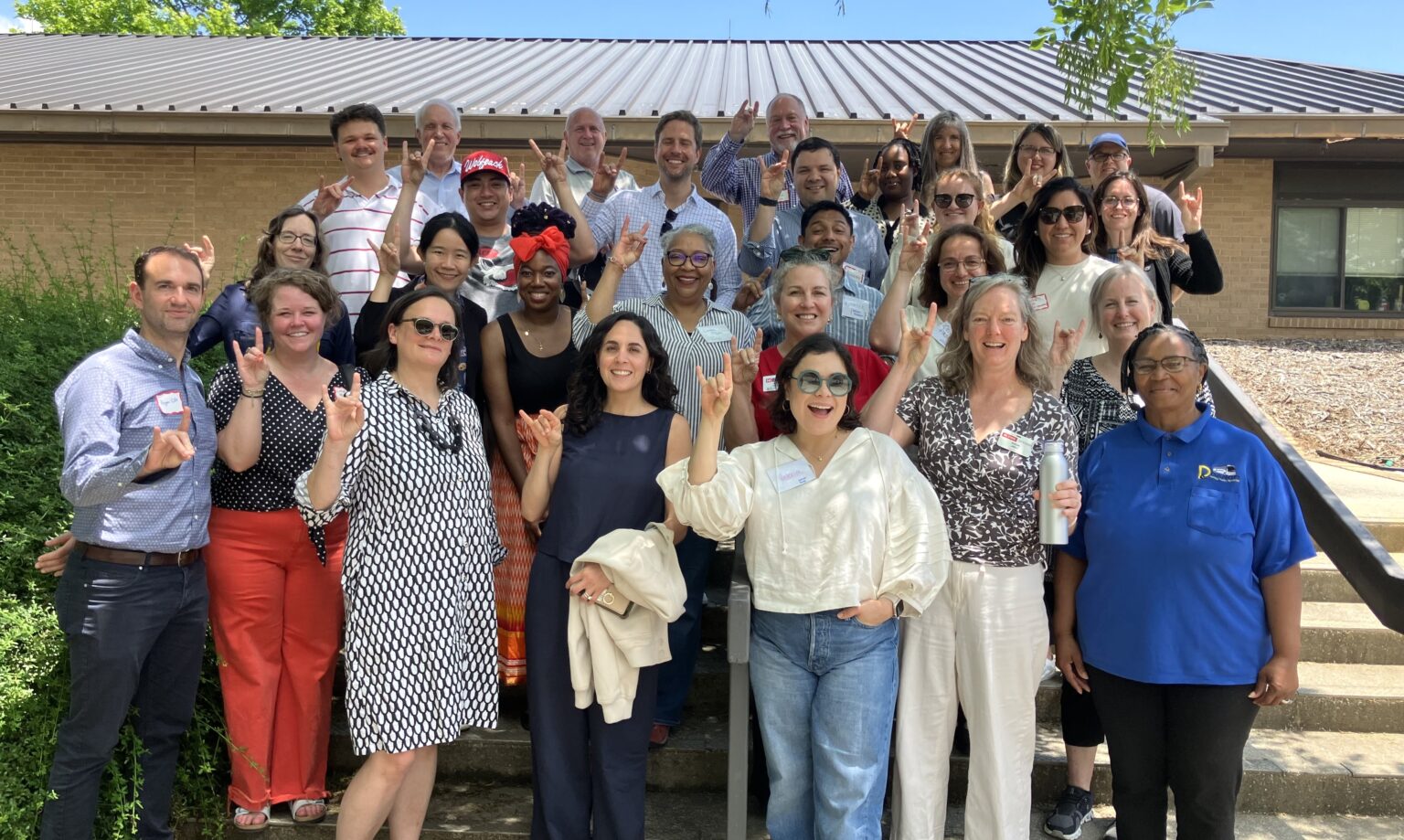Elevating Social Sciences, Elevating Lives
Through AI research, Poole professor Bill Rand works to make an impact on businesses, communities and society.

Poole College marketing and analytics professor Bill Rand’s research doesn’t so much focus on the human mind as a machine, but as a machine that models intellectual abilities.
Driven by an interest in how artificial intelligence can benefit a business, a community or a whole culture, his groundbreaking projects have the potential to inspire transformative change.
“I look around at the world and see something happening and wonder why it happens the way it does. And then I think, how can we improve it?” Rand says.
He recently received an award that will help him mentor other professors to make improvements in their fields.
Rand, director of Poole’s Business Analytics and AI Initiative (BAI), is one of four NC State professors chosen for the 2025 Alumni Association Outstanding Research Award. They’ve also been inducted into the university’s Research Leadership Academy, part of the Office of Research and Innovation.
“It would be great to harvest NC State’s research resources to apply them to the social sciences,” says Rand, only the second Poole professor, after Rob Handfield, selected for the academy.
Leading the BAI
With Rand’s BAI leadership, Poole’s undergraduate business analytics program is ranked No. 1 in North Carolina and No. 10 among U.S. public universities in 2025 by U.S. News & World Report. The publication ranks Poole’s online business analytics MBA program eighth in the U.S. in 2025.
Rand, co-chair of the university’s AI advisory group, leads the research subgroup, which offers guidance on new tools in generative AI, or machine learning that produces images, videos and text.
Through the research academy, he’ll promote research and faculty mentoring campus-wide.
“Some people don’t think of a business school as a place where research is done,” Rand says. “But the research Poole is doing contributes just as much to the overall notion of science as what comes out of the physical sciences or engineering. You can be just as valuable as a social scientist.”

His value as a social scientist is wide-ranging through his scholarship on consumer behavior, innovative research that impacts not only businesses but potentially society overall. The methods Rand develops can be applied to other disciplines.
He uses computational modeling techniques to examine real-world situations that influence data-driven decisions. “Almost all my work,” he says, “has been about how to create a model in a computer that represents reality.”
The reality he’s studying in one project is HIV prevention, working with Harvard Medical School and Massachusetts General Hospital. Rand and the BAI are applying methods he created in business research to help Kenyan doctors identify women possibly at high risk of HIV.
“We’re now using these techniques to help doctors understand how to educate people about very scary illnesses,” Rand says.
Studying the Shortcomings
Some of his current research focuses on AI’s pitfalls.
Amid concerns about incorrect information — called hallucinations — in generative AI, Rand and his colleagues are researching transparency with the technology. He’s studying whether requiring AI attribution with materials people create may encourage them not to take responsibility for accuracy. “When attribution is required, it distances them from that product,” he says. “If it’s wrong, it’s AI’s fault, not their fault.”
He’s also tackling AI algorithmic biases, found in employment, education and other areas. “As we know, historically humans are biased, and AI is trained and can reproduce those biases,” Rand says. “Companies may be using biased algorithms without even knowing it. So all companies should ask for some kind of algorithmic accountability” and disclose the results to consumers.
His research aligns with his role as director of the BAI, which he and Poole associate dean Richard Warr developed.
The Impact of BAI
The BAI, which launched five years ago, has made a big impact on education, research and thought leadership.
Rand’s initiative helps coordinate cross-college academic programs at Poole, including master’s programs in marketing analytics and management and risk analytics, and a business analytics undergraduate concentration. A business analytics concentration for economics students and a graduate certificate in business AI are coming.
The BAI brings in research funding, including support for his Kenyan HIV project. And, guided by an advisory board, the BAI hosts an annual business analytics and AI roundtable with interdisciplinary involvement from business and computer science students.
“The research Poole is doing contributes just as much to the overall notion of science as what comes out of the physical sciences or engineering. You can be just as valuable as a social scientist.”
Through Rand’s BAI role and the research lab he runs, he collaborates with Poole undergraduate and graduate students, the most rewarding part of his work.
“I really enjoy helping students understand how technology shapes the world around them. Spending time with them is amazing,” he says. “Poole students bring a lot of interest in entrepreneurship and innovation.”
Rand can take some credit for inspiring innovation in others.
“The number one thing that motivates me is intellectual curiosity,” he says. “I take into account how humans interact with the systems I see. How do we build systems that encourage people to act in a different way or to create a better company or better society?”


